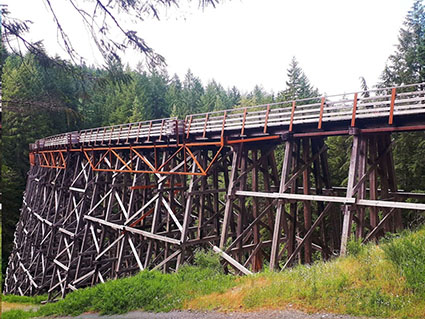Climate Change and Water Demand Effects on Koksilah River Low Flows
Client
Cowichan Tribes and BC Ministry of Forests, Lands and Natural Resources
Location
Koksilah watershed, Vancouver Island, BC
Project Duration
December 2020 – April 2021
Background
Xwulqw’selu Sta’lo’, otherwise known as the Koksilah River is located on Vancouver Island within the unceded territory of Cowichan Tribes and other First Nations. The watershed is important for cultural and spiritual reasons and the sustenance of livelihood practices. A large percentage of Cowichan Tribes membership lives in the lower reaches of the Xwulqw’selu Sta’lo’. Residents and land users rely on the watershed as a source of drinking water, for irrigation on farms, and recreational opportunities. Water levels and flows have been declining in summer and threaten fish survival. A government-to-government partnership was established between Cowichan Tribes and the Province of BC (formerly the Ministry of Forests, Lands and Natural Resources) to initiate Water Sustainability Planning to understand the reasons for declining summertime low flows and identify ways to manage this issue (for more information see www.koksilahwater.ca).
Services Provided
Hatfield completed an analysis of historical climate, hydrology, groundwater and land use data since 1960 and evaluated potential contributors to the declining summertime low flows. The results suggested that there are two main reasons for the decline in low flows, a threefold increase in groundwater and surface water demand over this time period, and the effects of climate change. These causes were estimated to be roughly equally important. Additionally, there are compounding influences from historical logging and forest regrowth, which affects groundwater recharge (through evapotranspiration processes) and baseflow contributions to the Koksilah River. Forest management also affects overall watershed values and stream channel integrity (erosion, aggradation) that may worsen low flow impacts from climate change and increased water use. How forests in the watershed are managed is therefore important for water sustainability planning.
